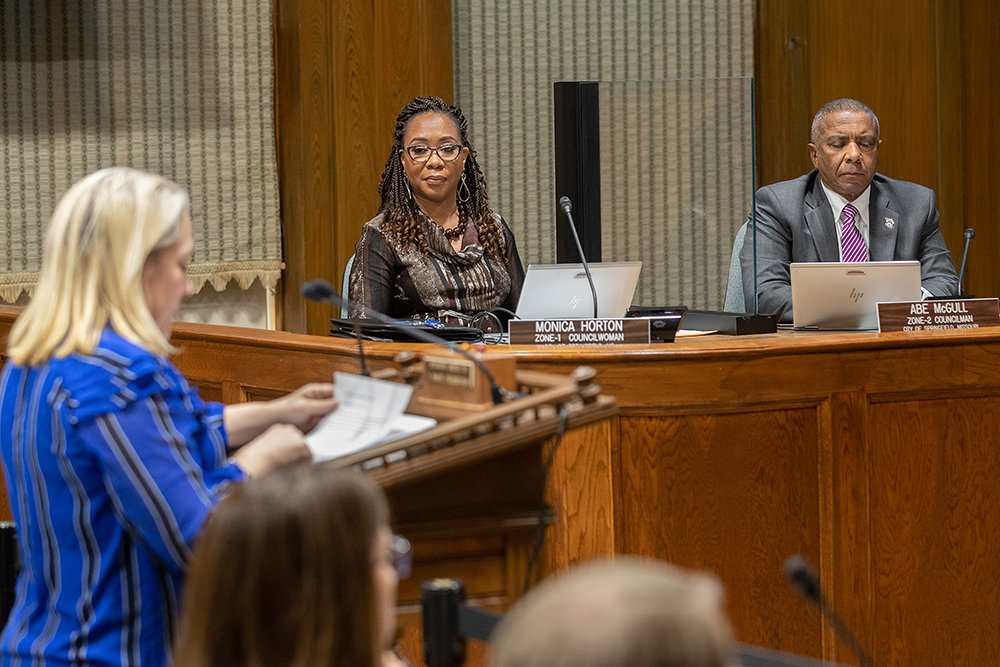YOUR BUSINESS AUTHORITY
Springfield, MO
YOUR BUSINESS AUTHORITY
Springfield, MO

Guiding principles reflecting Springfield’s commitment to equity and equality were unanimously approved by Springfield City Council at its regular meeting April 18.
Council heard and accepted a report and recommendations from the Mayor’s Initiative on Equity and Equality, a group charged with developing principles to improve equitable access to opportunities and recognizing the dignity, value and worth of each resident.
The initiative was convened in March 2021, in part as a response to the murder of George Floyd by a police officer in Minneapolis nearly a year earlier.
“Those actions were intolerable and caused Springfield city leaders to reflect upon the dignity of all persons, the value of life and especially the city’s response as a local government,” said Cora Scott, the city’s director of public information and civic engagement.
Scott called the Floyd killing a catalyst event that compelled Springfield, like many communities, to commit to positive and needed change with both words and actions.
Appearing by prerecorded video were the co-chairs of the 18-member volunteer group, Saehee Duran and Doug Neff.
Duran offered the group’s definitions of important terms, like inclusion, defined as the way diversity works.
“Inclusion is the creation and support of an environment that not only accepts but celebrates differences by leveraging diversity to make stronger decisions for the greater good,” said Duran, lead pastor at Life360 Intercultural Church. “Inclusive diversity is equally respectful of and embraces the unique qualities of each person.”
The group came up with 10 guiding principles for the city. There are statements of commitment in five categories: dialogue and understanding, cultural consciousness, advocacy and partnerships, structural and systemic barriers, and personal and organizational accountability.
Neff, Commerce Bank’s southwest Missouri region chair and CEO, said there is ongoing work to be done in equity and inclusion.
“We’re very hopeful that the council puts in place some kind of tracking and ongoing committee to make sure that we implement these principles and really double down on what this city stands for,” he said.
Taj Suleyman, the city’s director of diversity, equity and inclusion, said, “We are in a phase where we’re brainstorming ideas of how this is going to be implemented. … We’re looking at it from the sky’s the limit.”
City Manager Jason Gage suggested council include the initiative’s recommendations in its council priorities and comprehensive plan.
Mayor Ken McClure said he was pleased with the work of the initiative group, which included members from the business, education, faith and not-for-profit sectors.
“My vision is that, assuming that council would accept this, that we not only apply this to our activities as a city but that we make it available to a wide spectrum of various entities and institutions around the city,” he added.
Zone 1 rep sworn in
To kick off the meeting, Monica Horton was sworn in as Springfield City Council’s Zone 1 representative.
The nine-member body had been one member short for nearly two months since the resignation of former Zone 1 representative Angela Romine. Romine plans to run for a state senate seat, and filing her candidacy made her ineligible to keep her council position.
Horton was one of four candidates interviewed for the position during a special meeting April 12. The others were Stephen Sexton, Kathy Hubbard and Karen Banta. She was elected by a council vote immediately following the interviews and received seven votes, while Sexton received a lone vote from Councilperson Richard Ollis, and Hubbard and Banta did not receive any votes.
Horton will serve in the Zone 1 seat until April 2023, when a public vote will be held to fill the seat for the remaining two years of its original four-year term.
“I would like to join City Council, as well as the mayor, in recovering from these twin pandemics: COVID-19 as well as the systemic inequities that have become obvious to all of us while we were staying at home, quarantining and working on flattening the curve, and we certainly did a great job of that because of your leadership,” she said during her interview.
Horton told council the city has ongoing issues that must be addressed.
“We see individuals who have been displaced as a result of losing housing; we see small businesses that are in recovery as the result of the losses that they have had to bear the brunt of in terms of what COVID-19 has done,” she said.
Horton’s interview included a question about the deteriorating and inadequate housing stock in Zone 1.
Horton pointed out that 59% of the city’s residents are renters, with most of those in Zone 1.
“Renters need better pathways to home ownership,” she said.
Additionally, Horton said, landlords need to do right by their renters, and renters need to be educated on what their rights are.
She also shared her overall vision for Zone 1.
“In short term, I would like to see Zone 1 become an attractive place for growth and development, but not just because of how underdeveloped and blighted the land and the buildings are, or how high the poverty rate is or the crime rate is,” she said, “but because Zone 1 is an inherent promise to the city.”
Other action items
He recommended passage of the bill with several changes, including removal of 59 pages of residential standards, which will be considered separately, in May or June.
Speakers in favor of the bill included representatives of the Springfield Contractors Association, the First Unitarian Universalist Church of Springfield and its UU Environmental Justice Action Team, The Sierra Club and general contractor Richard Quint of Q & Co. LLC.
The measure is scheduled for a vote May 2.
Moseley’s Discount Office Products was purchased; Side Chick opened in Branson; and the Springfield franchise store of NoBaked Cookie Dough changed ownership.